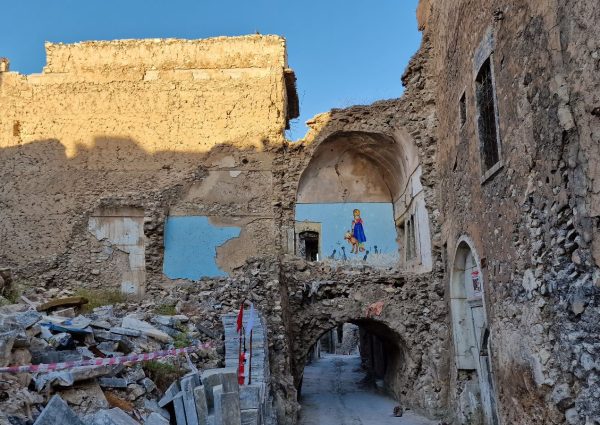International Training Course
On Post Crisis Recovery of Culture Heritage
Online: 2-4 October and 9-11 October 2024
In-person (Rome): 21-25 October 2024
About PCR-2024
Recognizing the urgent need for action, ICCROM and Fondazione Santagata for the Economics of Culture, with the generous support of the ALIPH Foundation, have responded by aligning their mission to protect and restore cultural heritage — particularly in conflict and disaster-affected areas.
We are launching a capacity development course on post-crisis recovery of cultural heritage. The course builds on the momentum of recent efforts in Mosul, Iraq, undertaken by ICCROM and partners, such as UNESCO, to build capacities in post-crisis recovery of cultural heritage.
The new hybrid international training offers a comprehensive programme aimed at enhancing the capabilities of professionals in heritage conservation, disaster and conflict recovery, and development sectors
- value assessment
- situation analysis in post-crisis contexts
- heritage in transition
- implementation of heritage recovery projects
- tools for recovery and resilience
Participants will engage in interactive lectures, analyze case studies, and work together in hands-on exercises, fostering international and cross-sectoral collaboration and networking opportunities. The course emphasizes the importance of interdisciplinary approaches and knowledge exchange in addressing the challenges of heritage recovery in post-crisis contexts.
Through a blend of theoretical insights and practical applications, participants acquire essential skills and knowledge to design, implement and monitor heritage recovery projects effectively.
The course structure comprises six thematic virtual sessions spread over two weeks in October 2024, followed by an immersive, in-person training in Rome during the third week.
The course “Post Crisis Recovery of Cultural Heritage” is open to 25 young and mid-career professionals from around the world, who are actively engaged in heritage conservation, disaster and conflict recovery, and development efforts.
The key selection criteria for participants will include:
- Professionals and institutions working in areas affected by conflict and/or disasters, or organizations dealing with the impact of conflict and/or natural disasters on heritage and their recovery
- Involvement in activities related to the course topic and experience in the heritage field
- Quality of submitted application forms, particularly the case studies provided
- Proficiency in English
Participants will develop an understanding of heritage values in post-crisis contexts, recognize the critical role of documentation in the recovery process, gain insights into conflict analysis, damage and risk assessment, and gain the ability to plan for recovery using sustainable, holistic and resilient strategies.

